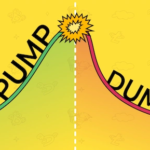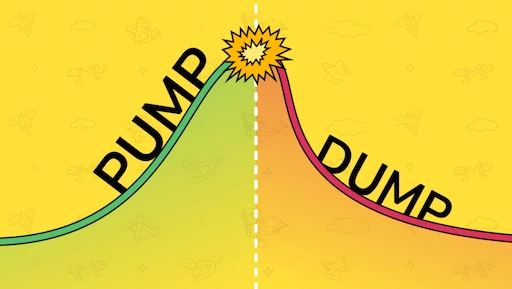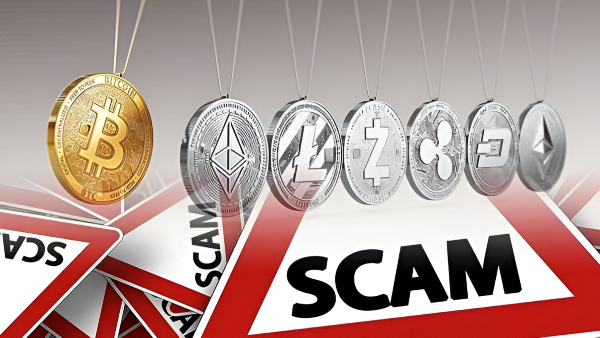The cryptocurrency industry has seen its fair share of highs and lows. From the massive collapses of exchanges like Mt. Gox and FTX to the implosions of firms like Three Arrows Capital, the crypto market has faced major challenges. Yet, amidst the turmoil, several firms have managed to stay strong. These exchanges and wallets have built reputations for security, regulatory compliance, and transparency. But how can investors tell which platforms are trustworthy and safe to use? This post highlights some of the most reliable crypto exchanges and wallets today and explains how to protect your investments.
1. Binance: A Global Leader in Compliance and Security
Binance is one of the largest and most well-known cryptocurrency exchanges globally. Despite facing regulatory scrutiny in various regions, Binance has worked hard to comply with laws in many countries. In places like the United States, Japan, and the European Union, Binance has adapted to local regulations. The company focuses heavily on user security, implementing features like two-factor authentication (2FA), cold storage for most of its funds, and an insurance fund (SAFU) to protect against hacks.
Over the years, Binance has proven resilient, bouncing back from market downturns and regulatory challenges. The exchange has built trust by providing transparency about its assets and regularly updating users on its liquidity status. Its reputation for staying ahead of potential risks has made it a go-to platform for millions of customers worldwide.
2. Coinbase: Regulatory Compliance Meets User-Friendliness
Coinbase is another major player in the cryptocurrency space. As a publicly traded company, Coinbase operates with a high level of transparency and accountability. It adheres to strict U.S. regulations, such as the Securities and Exchange Commission (SEC) rules, which provide investors with additional security. The platform also offers insurance for digital assets stored on its platform, providing peace of mind for users.
For beginners, Coinbase’s easy-to-use interface and educational resources make it a top choice. Whether you’re buying your first Bitcoin or trading altcoins, the platform is designed to be accessible to all. As a regulated exchange with a solid track record, Coinbase is considered one of the safest platforms for investing in cryptocurrencies.
3. Kraken: A Secure, Long-Standing Exchange
Founded in 2011, Kraken is one of the longest-running exchanges in the crypto industry. Kraken is well-known for its strong security protocols and regulatory compliance. It operates under the oversight of multiple regulatory bodies, including the Financial Conduct Authority (FCA) in the UK and the U.S. Department of Financial Services in New York. Kraken has built a reputation for being both secure and transparent, offering features such as cold storage, 2FA, and regular third-party security audits.
The platform offers a wide range of services, including staking, futures trading, and crypto-backed loans. Kraken’s commitment to keeping user funds secure, combined with its extensive regulatory oversight, makes it a reliable choice for serious crypto investors.
4. Gemini: Strong Regulation and a Focus on Security
Gemini is another U.S.-based exchange that places a strong emphasis on regulation and security. Founded by the Winklevoss twins, Gemini is one of the first crypto platforms to obtain a New York Trust License. This license allows the exchange to operate in a highly regulated environment, ensuring the safety of users’ funds. Additionally, Gemini complies with KYC (Know Your Customer) and AML (Anti-Money Laundering) regulations, which are crucial for reducing fraud and money laundering risks.
Gemini’s robust security features, such as cold storage and insurance for digital assets, further reassure users. It’s one of the most regulated exchanges in the U.S. and offers a transparent, secure environment for trading and storing cryptocurrency.
5. Bitstamp: European Exchange with a Legacy of Trust
Bitstamp, founded in 2011, is one of the oldest crypto exchanges. Based in Luxembourg, it has been a leader in the European crypto market. Bitstamp is licensed and regulated by the Luxembourg Financial Supervisory Authority (CSSF), making it one of the most trusted exchanges in Europe. The platform operates in full compliance with EU regulations and adheres to KYC and AML standards.
Bitstamp offers cold storage, 2FA, and regular audits of its reserves to ensure the safety of funds. Its long history, regulatory adherence, and commitment to transparency have helped Bitstamp maintain trust with users around the world.
6. eToro: Combining Traditional Finance and Crypto Trading
While eToro is known for its social trading features, it has also become a popular platform for crypto investors. With a focus on user experience, eToro allows investors to follow and copy the trades of more experienced traders. This makes it a great option for beginners looking to learn from others. The platform is regulated by the FCA in the UK and the Cyprus Securities and Exchange Commission (CySEC), ensuring it operates within strict legal frameworks.
eToro offers multi-asset trading, allowing users to invest in stocks, forex, commodities, and cryptocurrencies all in one place. The platform also employs industry-standard security measures, such as 2FA and cold storage for digital assets. As a well-regulated and secure platform, eToro is a good choice for traders who want access to both traditional and digital assets in a regulated environment.
7. Self-Custody Solutions: Ledger and Trezor
For investors who prefer to hold their crypto assets independently, Ledger and Trezor are the two leading hardware wallets. These wallets store your private keys offline, minimizing the risk of hacks that can occur with exchanges or online wallets. Both Ledger and Trezor offer multi-currency support and provide strong encryption to keep your assets secure.
- Ledger: Known for its Nano S and Nano X devices, Ledger has become a trusted name in the hardware wallet industry. It allows users to store a wide range of cryptocurrencies and offers an easy-to-use interface.
- Trezor: Trezor’s Model T and Trezor One also offer multi-asset support and are designed with advanced security features. Both wallets offer secure recovery options, ensuring users can restore their funds even if their device is lost or damaged.
Why These Platforms Can Be Trusted
These platforms have proven themselves over time through regulatory compliance, user-focused features, and commitment to security. Whether you’re using an exchange like Binance or Coinbase or holding your assets with a hardware wallet like Ledger or Trezor, these platforms prioritize user protection. They operate under the oversight of regulatory authorities, conduct regular security audits, and provide transparent, secure services to millions of users worldwide.
How to Protect Yourself as an Investor
While these platforms are trusted, it’s essential to remain vigilant. Here are some tips to protect your investments:
- Enable Two-Factor Authentication (2FA): Always use 2FA to add an extra layer of protection to your accounts.
- Use Cold Storage for Long-Term Holdings: If you’re holding crypto long-term, consider using a hardware wallet like Ledger or Trezor.
- Avoid Leverage and Excessive Risk: Be cautious when using leverage, as it can amplify losses during market downturns.
- Research the Platform: Ensure the exchange or wallet provider has a solid track record of security and regulatory compliance.
Conclusion
Though the crypto market has seen its share of challenges, reliable platforms like Binance, Coinbase, Kraken, Gemini, and Bitstamp have stood the test of time. By focusing on security, compliance, and transparency, these platforms have earned the trust of millions of users worldwide. Additionally, self-custody options like Ledger and Trezor provide another layer of security for those who prefer to control their own assets. By choosing reputable platforms and following best practices, investors can protect their crypto holdings and navigate the volatile market with confidence.











